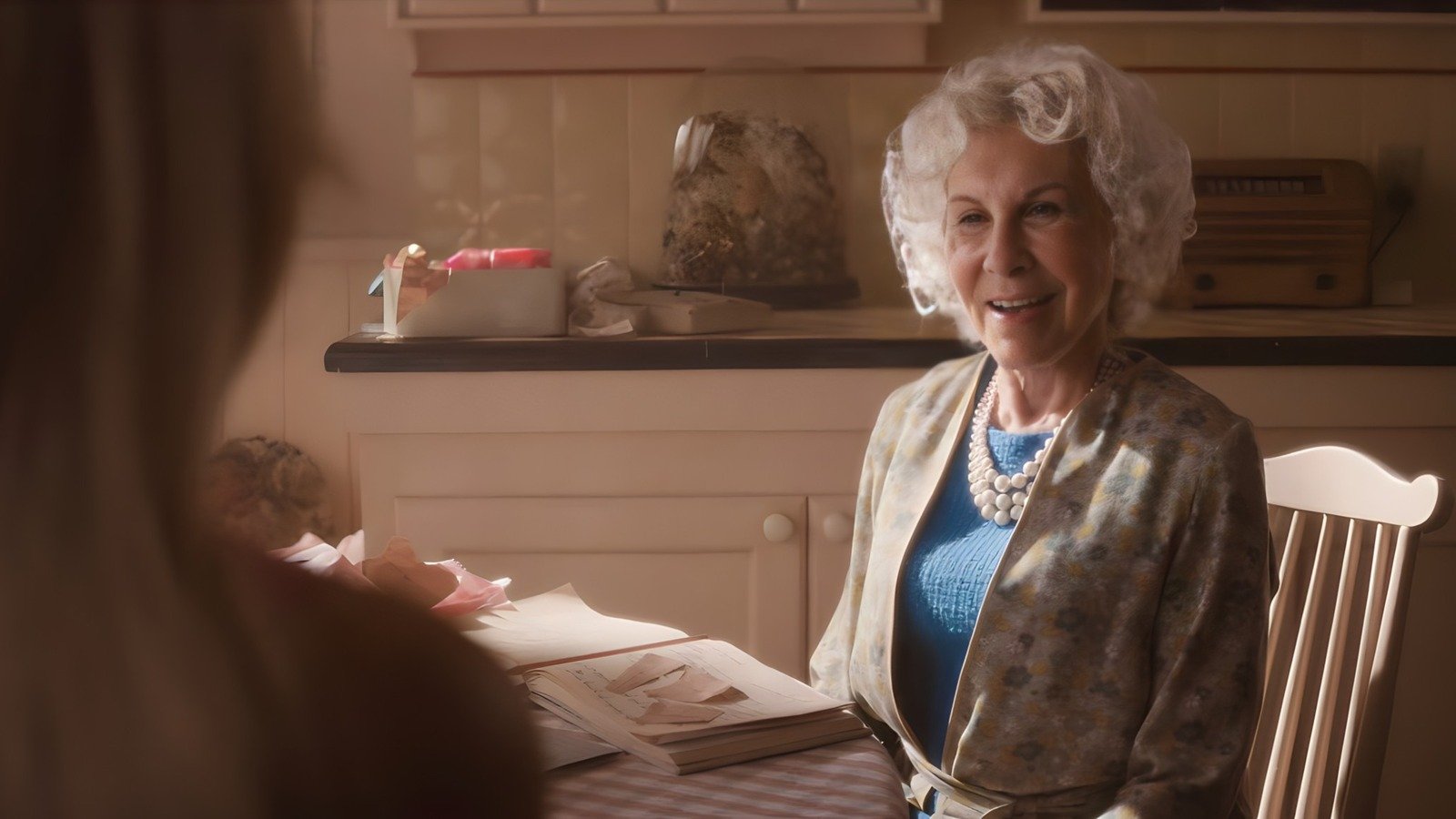Barbie is a Better Creation Story
There are already so many insightful reviews about the new Barbie film (like this one from Gareth Higgins about how its an example of holistic liberation) and some critiques for how it might have done more to address racism as a twin oppressor to patriarchy. I’m sure there really doesn’t need to be another piece about Barbie, yet as I watched it with my teen daughter yesterday in what was my third viewing, the lens that kept moving me to tears was seeing Barbie as a creation story. And it’s a better creation story than the one most of us were immersed in that still undergirds so much of our harmful patriarchal systems. (Spoilers ahead!)
We begin in Eden
Barbie begins in an Eden-like setting where every day is perfect. “[Today] is the best day ever. So was yesterday, and so is tomorrow, and every day from now until forever.” Of course it’s a very pink and plastic kind of Eden with a lot of sparkly outfits and choreographed dance parties, but to the Barbies, this is perfection. Women run everything and the the whole of Barbie Land works for the empowerment and fulfillment of the Barbies.
Ken, well—Ken is a helper, a secondary creation. He’s really an accessory to the main creation, and they all know it. Helen Mirren’s narrator even says, “Barbie has a great day every day, but Ken only has a great day if Barbie looks at him.”
By going to the absurd extremes, with actors who brilliantly pull it all off, co-writer and director Greta Gerwig scores hilariously resonant points about the harms and ills of gender inequality. (The screenplay was co-written by Greta’s partner, Noah Baumbach.) And for the few right-wing ranters about Barbie being anti-men, I wonder if they actually watched the film because it’s very much about how any system that dominates others ultimately needs dismantling.
This film does what the nonviolent elders such as Gandhi, Bayard Rustin, Dr. King, and Thich Nhat Hanh have tried to teach us: the goal is a double victory where the oppressors also get free of the harmful ideas perpetuating suffering. Ken clearly is suffering in the world where Barbie Land only thinks about the flourishing of the Barbies, and that’s what leads to his enthusiastic adoption of patriarchy.
The Tree of Knowledge, also called Reality
When Barbie begins to malfunction with thoughts of death, flat feet, and a small patch of cellulite, she’s given what appears to be a choice from Weird Barbie. Weird Barbie is possibly my favorite character (played to perfection by Kate McKinnon). She’s the trickster, the in-between worlds, wise woman character. She looks bizarre because she was played with too hard in the real world and is now mostly stuck in the splits. (Didn’t we all have a doll that we gave too many haircuts to and used too many markers to decorate her face?).
And Weird Barbie gives her a choice to try to fix her malfunction with a trip to the real world. This is the Tree of Knowledge of Good and Evil moment. Does Barbie choose to stay blissfully ignorant of complex emotions and the reality of death? Or does she choose to step into Reality with all of its nuances? She isn’t one of the brave or adventurous Barbies—she’s Stereotypical Barbie—so she wants the pink high heel and to return to ignorance and bliss. It turns out not to be a real choice because she’s does have to go to Reality. We have to grow up.
Daniel Shroyer in Original Blessing, her book about why the concept of original sin is deeply harmful and also not actually shared by other major world religions outside of Western Christianity, puts it this way in her discussion of better readings of the Genesis poem:
“Peter never wants to leave Neverland, but Wendy wisely realizes it is better to grow up. And it is, even if the process is always bittersweet…God places the tree and the snake in the garden because they are necessary. If we are to live into the image of God, we cannot remain infants, or children, or even teenagers.”
Growing up is really bittersweet
My youngest right now (7.5—the one whose prayers inspired Dear Mama God) has suddenly been wishing she could return to being younger. She doesn’t always like what getting bigger means. She’s in a developmental threshold space, and sometimes we cry together about how we wish time worked like that. This is why Peter Pan remains such a classic story. Growing up as a human and becoming aware of the complexities of Reality is really hard!
This is how I read the Eden narrative of Genesis now: it’s a fable about growing up, both individually and as a species. Humans are the only animals, as far as we know, that have the level of self-awareness we have that leads us to anticipate death and loss. Wendell Berry in his beautiful poem, “The Peace of Wild Things” says:
I come into the peace of wild things
who do not tax their lives with forethought
of grief.
To be a human means we “tax” our lives “with forethought of grief.”
We are aware. We wonder about the ethics of actions. We ruminate on loss and worry. Yes, we can also ruminate on joy, find rest, and experience great beauty, but we do not have the easy innocence of not being aware in the first place.
Ultimately, Barbie does meet her Maker. At first, Barbie thinks the Mattel CEO is God who makes the rules. But he turns out to be a profit-driven, patronizing corporate suit (played with more than a touch of goofiness by Will Ferrell) who wants to control her emerging sense of self-awareness by literally putting her back into a box with her wrists tied down.
Barbie’s Maker (played beautifully by Rhea Pearlman)
Instead, Barbie’s Maker is a kind, gentle Jewish grandmother who finds her best thinking place to be at a kitchen table with her pot of tea and sewing machine. This is the real inventor of Barbie—Ruth Handler (played beautifully by Rhea Pearlman).
Even typing this now I find myself overcome with tears because this story sees our Maker as very tender towards us. She doesn’t control Barbie. She’s curious and even surprised to see the choices Barbie is making as she grows up and decides to become fully human, complex emotions and thoughts of death included.
The Maker (now Grand Mama God in my mind) takes Barbie’s hand in the end. This is very much a commentary on the Michelangelo Sistine Chapel famous image that studies show we see when someone tells us to imagine “God,” even if we don’t want to imagine divinity as a bearded old white man! It’s such a central image to the creation story that undergirds Western thought and the current domination systems, including patriarchy, that do so much harm.
This Maker though is gazing at her growing-up creation with compassion, pride, and deep love. She warns Barbie: “Humans only have one ending. Ideas live forever.” But humans? We are mortal. And it’s that awareness of our mortality that makes growing up so very bittersweet. The Maker also says that “being a human can be pretty uncomfortable. Humans make up things like patriarchy and Barbie to deal with how uncomfortable it can be.
Barbie knows. She’s realized that she wants the complexities and even the thoughts of death that come with being fully alive. And she wants creativity, which comes with this uncomfortable awareness. She wants to be “part of the people that make meaning, not the thing that is made.”
And in choosing to be fully human, she actually is a Brave Barbie.
This is how I view Eve now. She was brave to lean into awareness with all of the complexities that involves. She also didn’t really have a choice after all, even if sometimes there is the illusion of a choice. We can’t pick the pink high heels and stay in ignorance and bliss. It’s understandable that we try to distract ourselves away from Reality with our own escapist inventions. But, ultimately, we have to grow up. We have to become fully human, fully alive. Tears, cellulite, thoughts of death and all.
And our Maker? She’s got nothing but tenderness and pride in that loving gaze.
Daneen Akers is the author of Dear Mama God and Holy Troublemakers & Unconventional Saints.

